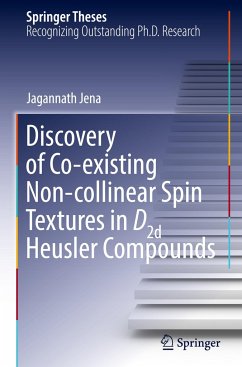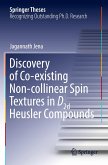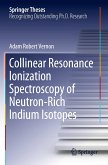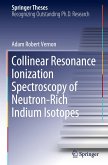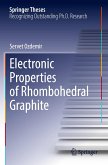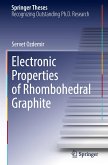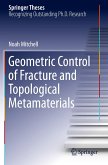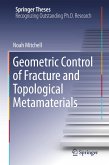Non-collinear spin textures have attracted significant attention due to their topological nature, emergent electromagnetic properties, and potential spintronic and magnonic device applications. This book explores the physical properties of distinct spin textures in D2d compounds. The main goals of the work are (a) discovering new spin textures in D2d Heusler compounds and studying their detailed properties to enrich the field of non-collinear magnetism (b) optimizing the nano-track geometry and generating isolated and single chains of nano-objects that will establish new hallmarks for technological applications (c) studying the stability of spin textures with magnetic fields and temperatures and finding a way to observe the striking behavior of spin textures near the specimen edges. The first few chapters provide a brief overview of spin textures such as Bloch and Néel skyrmions. In the experimental methods section, the author shows how to identify the single-crystalline grains of a polycrystalline sample, how to make single-crystalline thin specimens and nano-tracks, and then provides explicit descriptions of different imaging techniques performed on a transmission electron microscope. This part will be valuable for beginners wishing to conduct research in experimental nano-magnetism and transmission electron microscope imaging. The core results of the book are presented in four chapters, describing the discovery of several new and unanticipated spin textures, namely square-shaped antiskyrmions, elliptical Bloch skyrmions, fractional antiskyrmions, fractional Bloch skyrmions and elongated (anti)skyrmions in a single D2d Heusler compound. It is shown that these textures can be understood by a combination of dipole-dipole interactions and a chiral vector exchange that makes it possible to stabilize various spin textures even in the same compound. The D2d compounds are the first non-centrosymmetric systems shown to host several co-existing non-collinear spin textures.
Bitte wählen Sie Ihr Anliegen aus.
Rechnungen
Retourenschein anfordern
Bestellstatus
Storno

